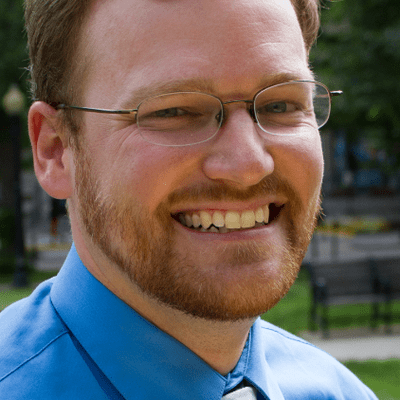Introduction

When six-term GOP incumbent Sen. Orrin Hatch of Utah faced the prospect of a mutiny from conservative activists, his allies within the pharmaceutical industry stepped in to help defend him.
New documents obtained by the Center for Public Integrity show that the drug lobby’s main trade group, the Pharmaceutical Research and Manufacturers of America (PhRMA), gave $750,000 in 2011 to Freedom Path, a nonprofit group that spent big to help Hatch win another term.
Despite his solid conservative credentials, Hatch drew a primary challenge from former state Sen. Dan Liljenquist in the 2012 election. Hatch out-fundraised the challenger by an 11-1 margin, but Liljenquist was helped by super PAC FreedomWorks for America, which reported spending nearly $1 million on anti-Hatch ads.
Filings with the Federal Election Commission indicate that Freedom Path spent at least $517,000 on ads designed to help Hatch’s electoral prospects, though Freedom Path board member Scott Bensing said the group’s spending was closer to $1 million.
The drug lobby’s donation was revealed on PhRMA’s newly filed Form 990 with the Internal Revenue Service, which covers the 2011 calendar year. Since the donation went to a nonprofit, it was not required to be reported to the Federal Election Commission.
PhRMA made contributions to several other politically linked nonprofits, including:
- $500,000 to “Montana Growth,” which appears to be a group that produced fliers and radio ads supporting a conservative candidate for the state Supreme Court;
- $264,500 to the American Legislative Exchange Council, a controversial organization made up of state lawmakers and corporate executives that creates “model legislation” for state legislatures;
- $250,000 to the liberal-aligned Citizens for Strength and Security;
- $200,000 to anti-tax crusader Grover Norquist’s Americans for Tax Reform;
- $40,000 to conservative think tank the Heritage Foundation; and
- $40,000 to the Utah Families Foundation, which Hatch helped start in the 1990s and still raises money for.
(Update: Nov. 30, 2012, 5:45 p.m.: Additional research has shown that “Montana Growth” was not the “Montana Growth Network,” which was active in the state’s Supreme Court race, but rather a Democratic-aligned nonprofit. See this article for more.)
Freedom Path is a “front group set up to protect Orrin Hatch,” said Russ Walker, FreedomWorks’ vice president of political and grassroots campaigns.
“Orrin Hatch has always worked hard for the drug lobby,” Walker said. “He has always been an advocate for their positions.”
A spokesperson for Hatch did not respond to requests for comment.
But Dave Hansen, Hatch’s campaign manager, said by law the campaign couldn’t coordinate with Freedom Path.
“We had no contact with them,” he said. “And did not know what they were doing, when they did it or where they got their funds from.”
According to Bensing, Freedom Path seeks a “more accountable federal budget, a balanced budget amendment and less intrusive government.”
He said his organization has received money from about “eight to 10” contributors, totaling roughly $1.5 million since its launch last year. He declined to identify any of these backers. The group reported raising $850,000 in 2011 from two donors, according to an IRS document obtained by the Center for Responsive Politics.
Earlier this year, Liljenquist complained to The Salt Lake Tribune about the lack of information about Freedom Path.
“Organizations have just as much right as people to participate in politics, but there should be visibility on who is funding them and where that money is coming from,” he said.
Federal rules only require Freedom Path, which is a 501(c)(4) “social welfare” nonprofit, to disclose its donors if a contribution is earmarked for a specific advertisement. Freedom Path officials says the group has not solicited money for particular ads.
Like Freedom Path, FreedomWorks operates a nonprofit wing that does not reveal its donors. The non-disclosing nonprofit also accounted for about 15 percent of the $15 million raised by its super PAC arm.
Friend of PhRMA
Hatch received more campaign contributions from the pharmaceutical industry than any other member of Congress in the 2011-2012 election cycle, some $448,000, according to the Center for Responsive Politics.
The 78-year-old lawmaker sits on the Senate Health, Education, Labor and Pensions Committee and is the ranking GOP member on the powerful Senate Finance Committee.
As far back as 1984, he authored legislation with Rep. Henry Waxman, D-Calif., that helped allow generic drugs to flourish but also gave brand-name pharmaceutical companies new powers to contest patent infringements by generics.
And he helped spearhead a successful effort to give pharmaceutical companies 12 years of exclusive rights to sell biologic drugs rather than the seven-year period favored by President Barack Obama during the health care reform debate.
Furthermore, his son, Scott Hatch, is a partner at a lobbying firm whose clients include PhRMA and drug-maker GlaxoSmithKline, though both Hatches have maintained that Scott does not lobby his father or his office.
PhRMA declined to respond to direct questions from the Center. Senior vice president Matthew Bennett said in a written statement that the group “often makes grants or charitable contributions to organizations that share PhRMA’s goals.”
PhRMA spent more than $14 million on lobbying in the first three quarters of this year and donated $185,500 to politicians via its PAC during the 2012 election cycle, including $6,000 to Hatch, federal records show.
In July, it also gave $50,000 to a joint fundraising committee that benefited three Democratic super PACs: Majority PAC, House Majority PAC and Priorities USA Action, which supported Obama’s re-election.
The new IRS filing further shows that PhRMA contributed $5,000 to the American Action Network, a conservative nonprofit headed by former Sen. Norm Coleman. That’s down significantly from the $4.5 million PhRMA donated to the group in 2010.
PhRMA officials declined to comment about whether the organization gave additional money to American Action Network in 2012.
Long-time ALEC member
PhRMA has provided financial support to the Republican-dominated American Legislative Exchange Council for years. Jeffrey Bond, a senior vice president at PhRMA, sits on ALEC’s “private enterprise board.”
The organization opposes policies that would allow U.S. consumers to buy prescription drugs from countries such as Canada at bargain prices and bring them back to the United States. It has also pushed model legislation aimed at countering proposals that advocate for government-mandated price controls on pharmaceuticals.
Meanwhile, in a seeming departure, the trade group appears to have given a large contribution to an organization active in Montana’s Supreme Court election.
Montana Growth, whose address is listed as a mailbox at a UPS store in Washington, D.C., on the IRS form, appears to be the “Montana Growth Network,” which sought to influence the state’s nonpartisan judicial race. State District Judge Laurie McKinnon defeated Missoula public defender Ed Sheehy for an open seat on the high court, after attorney Elizabeth Best was knocked out during a contentious primary.
McKinnon was endorsed by the Montana Chamber of Commerce and Montana Farm Bureau, while the Montana Growth Network attacked Sheehy for a case in which he argued that the death penalty was unconstitutional.
The $500,000 donation was far more than the candidates raised in a state where contribution limits are among the lowest in the nation.
McKinnon, who won with about 56 percent of the vote, raised about $87,000 while Sheehy raised roughly $67,000, according to the nonpartisan National Institute on Money in State Politics.
Group’s origins questioned
In 2010, Hatch’s Republican colleague, Sen. Bob Bennett, was targeted by tea party-aligned activists and thwarted from winning a fourth term in the U.S. Senate. Hatch wanted to avoid a similar fate.
Bennett’s re-election was opposed by the anti-tax group Club for Growth as well as FreedomWorks, which is headed by former Republican House Majority Leader Dick Armey.
Freedom Path’s first ad was released in July of 2011. It touted Hatch and tea party-backed freshman Sen. Mike Lee, who bested Bennett in 2010, as “leading the fight in Washington to get spending under control,” though Lee had declined to endorse Hatch before the June primary.
Another ad in January championed Hatch as “leading the conservative charge to repeal Obamacare.” And one ad in March trumpeted the balanced budget amendment introduced by Hatch and Lee.
The group also produced several advertisements attacking Liljenquist.
Ultimately, Hatch prevailed, capturing about two-thirds of the vote.
During the contested primary election, all that was known about Freedom Path was its leadership, which has ties to the National Republican Senatorial Committee and former Sen. John Ensign, R-Nev.
In addition to Bensing, the group’s board members include GOP operative Mark Emerson.
Bensing is a lobbyist at the firm SB Strategic Consulting, whose clients include the Nevada Department of Transportation, Station Casinos in Las Vegas and Zuffa LLC, the parent company of the Ultimate Fighting Championship.
He previously worked as Ensign’s chief of staff and as the executive director of the NRSC.
Emerson, meanwhile, previously worked for Hatch and served as Ensign’s chief of staff in the U.S. House of Representatives. He once was the executive director of the Utah Republican Party.
During the campaign, Freedom Path also hired the consulting firm November Inc., which is headed by Mike Slanker, a former NRSC operative and Ensign aide.
Sheila Krumholz, the executive director the Center for Responsive Politics, said PhRMA’s $750,000 contribution to Freedom Path allowed the drug lobby to claim some credit for Hatch’s victory, “without being directly linked to the outside group’s expenditure if he’d lost.”
Rick Hasen, a professor at the University of California-Irvine law school, added that voters should have been informed of the donation because it would have helped them judge the “credibility of the ads.”
“Groups adopt anodyne names like ‘Freedom Path’ which reveal nothing to voters about who is really behind [their] political advertising,” he said. “Voters may have liked or not liked that Sen. Hatch’s election was being supported by the pharmaceutical industry, but they should have known about it.”
Read more in Money and Democracy
Money and Democracy
Resources for understanding the fiscal cliff
Money and Democracy
Drug lobby donation went to pro-Democratic nonprofit
PR firm linked to group that received $500,000 PhRMA donation



Join the conversation
Show Comments